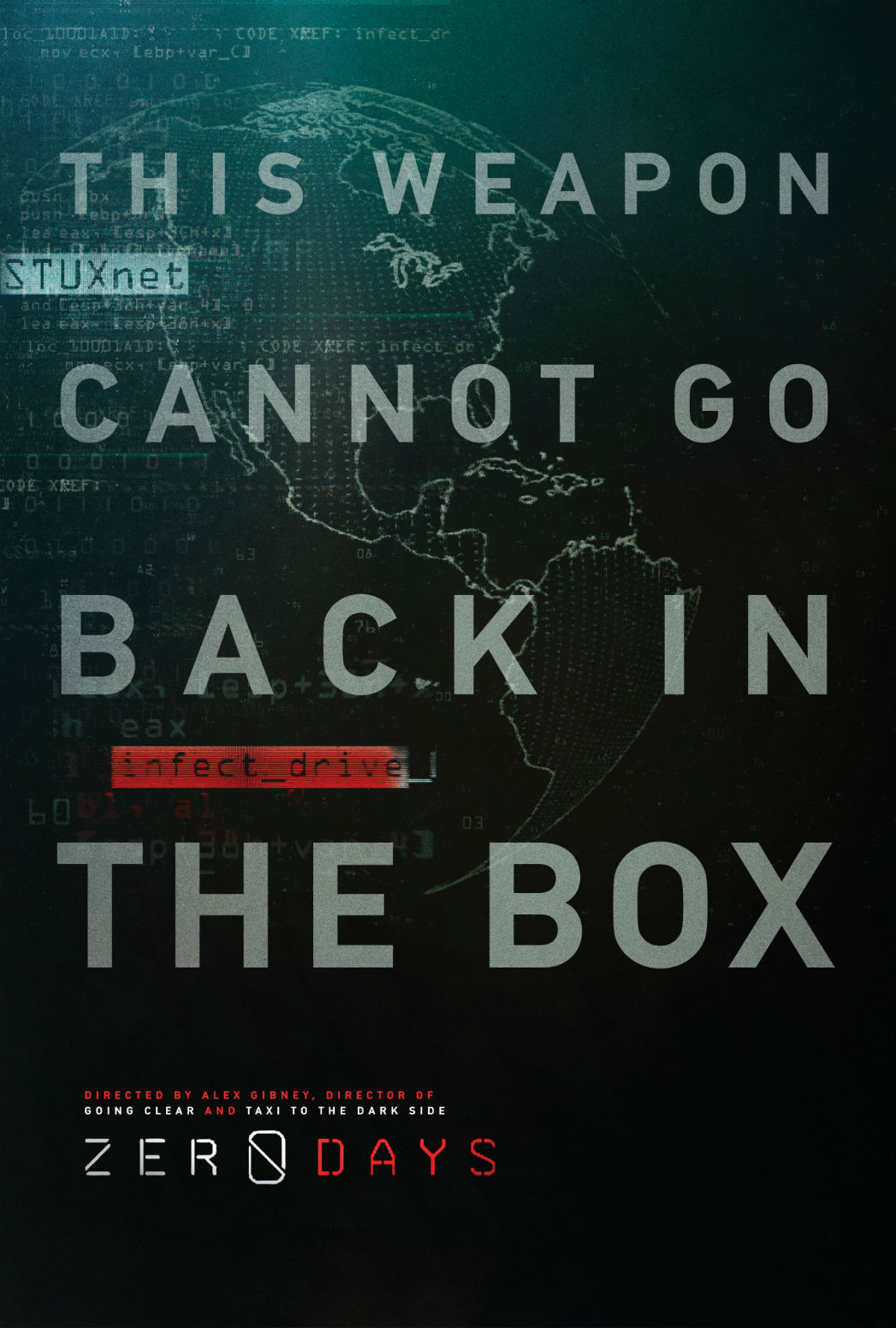Doc Corner: 'Zero Days' is One of the Year's Best
 Tuesday, July 12, 2016 at 11:33AM
Tuesday, July 12, 2016 at 11:33AM Glenn here with our weekly look at documentaries from theatres, festivals, and on demand.
 Alex Gibney works with such ferocious regularity that it’s sometimes hard to keep track. Last year alone he had three films released following two the year before that. His latest, Zero Days, falls into the camp of Gibney films in which he most excels - those like Mea Maxima Culpa: Silence in the House of God and Enron: The Smartest Guys in the Room that allow him to exercise his skills at investigative journalism and dig deep into exposing organizations and those who surround them. While it lacks the pop fancies that made Going Clear: Scientology and the Prison of Belief such a success, Zero Days is Gibney’s best documentary in years.
Alex Gibney works with such ferocious regularity that it’s sometimes hard to keep track. Last year alone he had three films released following two the year before that. His latest, Zero Days, falls into the camp of Gibney films in which he most excels - those like Mea Maxima Culpa: Silence in the House of God and Enron: The Smartest Guys in the Room that allow him to exercise his skills at investigative journalism and dig deep into exposing organizations and those who surround them. While it lacks the pop fancies that made Going Clear: Scientology and the Prison of Belief such a success, Zero Days is Gibney’s best documentary in years.
Told with all the propulsive, thrilling excitement of a Hollywood spy blockbuster, Zero Days lifts the lid on a series of cybercrimes (reportedly - the film certainly makes a valiant case for it) committed by the US government in alignment with Israel against Iran and their potentially dangerous nuclear program. The crimes backfired drastically and exposed America and the world to a future of uncertain technological warfare...
It might not sound sexy, but Gibney has gussied his film up with compelling editing of Andy Grieve and Hannah Vanderlay, and most significantly a raft of visual effects that make the film pop on screen like so few films about something as drab as politics do. The use of a gimmick similar to Gibney’s Client 9: The Rise and Fall of Eliot Spitzer works surprisingly well as an actor reads anonymous testimony, the image filtered through a computer for added meta intrigue (the look of it is somewhat similar to the animation of last year's Listen to Me Marlon). It’s a small, but important element to the movie, emboldening it with a necessarily jolt of cinematic pep.

The story has clearly energized Gibney in a way that I haven’t seen in his recent run of films about famous men like Frank Sinatra, Steve Jobs, Lance Armstrong, and James Brown. Perhaps the investigative nature of last year’s Going Clear: Scientology and the Prison of Belief sparked his brain again, but I’m thankful for whatever it was that steered him towards this material. Gibney has a knack for taking dense, often labyrinthine material and manipulating it into something that isn’t just coherent and, I guess you could snootily say, for laymen but also thrilling and stimulating.
While it’s true I probably couldn’t give you a definitive answer of what a “zero day” is, I nonetheless found the flood of facts, figures, jargon and technicalities that this two-hour film throws at the viewer – rarely allowing them to catch a breath – riveting and informative. Much like Inside Job, it takes a wealth of information that, when taken in dribs and drabs on the nightly news and in the morning newspaper, could appear to be of little consequence, and makes a chilling case for them as actually one of the most important stories of our time. It is an excellent film and when the time comes for Hollywood to adapt it into a tech-thriller along the lines of The Net or The Fifth Estate, the chills that Gibney’s film elicits won’t dim and the revelations it makes will remain.
Release: Opened last weekend in limited release across the country through Magnolia. It is also available on VOD.
Oscar Chances: Gibney has an Oscar and another nomination to his credit, and he came close to another one last year for Going Clear. That is to say, don’t underestimate him. Zero Days may not have the pop cache of last year’s Scientology expose, but I can see it appealling to both the new and the old guard of the doc branch. It's looking like a solid long-list contender, at least.
 Alex Gibney,
Alex Gibney,  Doc Corner,
Doc Corner,  Reviews,
Reviews,  documentaries,
documentaries,  politics
politics 


Reader Comments (2)
This sounds so interesting. I really need to see more docs but there are so many movies in the world it ttends to be the last type of movie i look into. But I did really like Going Clear so i should check out more of his
I'm very excited to learn this is on VOD. I love Gibney's films. (I'm glad for the comparison to Mea Maxima Culpa, a movie I personally thought was more effective than Spotlight in telling a similar story.)